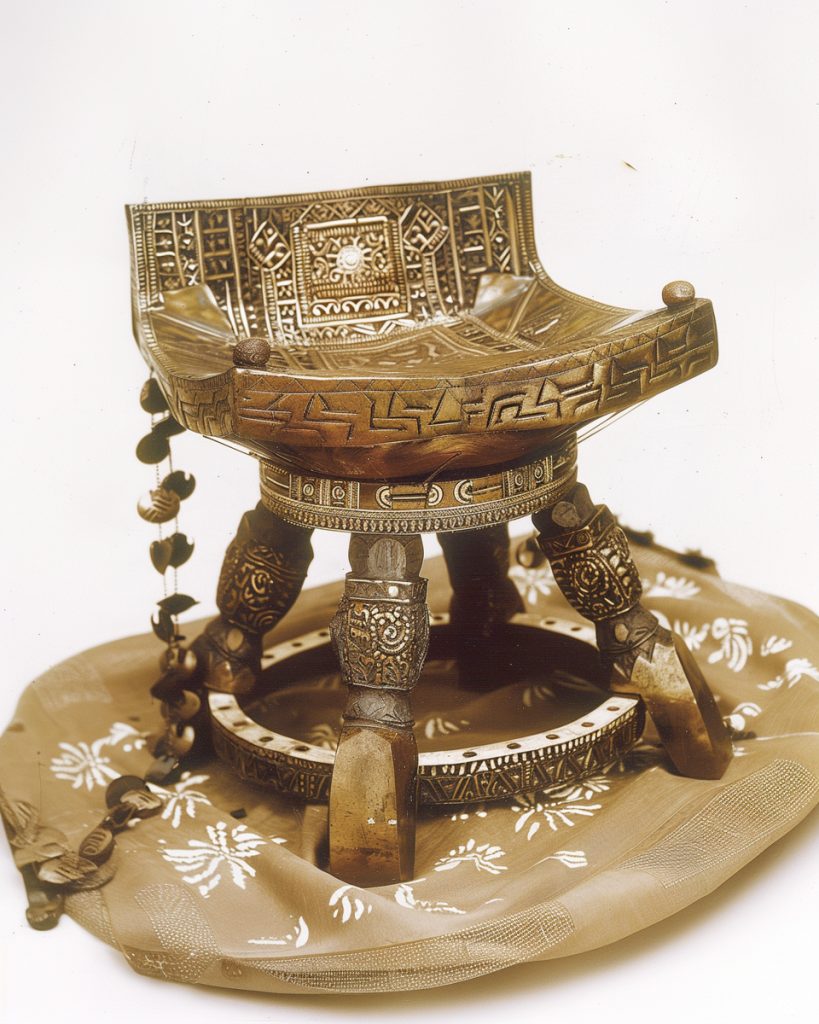In the annals of colonial resistance, few stories captivate the imagination quite like the War of the Golden Stool.
This remarkable conflict, which unfolded in 1900, pitted the mighty British Empire against the Ashanti people of West Africa.
At its heart lay a sacred object – a golden stool that embodied the very soul of the Ashanti nation.
The spark that ignited this war was an audacious demand by British Governor Frederick Hodgson.
In a moment of cultural insensitivity that would echo through history, Hodgson insisted on sitting upon the revered Golden Stool.
This seemingly simple act of disrespect triggered a rebellion that would shake the foundations of British colonial rule in the region.
The Ashanti, led by the indomitable Queen Mother Yaa Asantewaa, rose up to defend their cultural heritage and assert their independence.
As the conflict unfolded, it became clear that this was no ordinary colonial skirmish.
The War of the Golden Stool transcended mere military engagement, evolving into a powerful symbol of cultural resistance.
It challenged the notion that imperial might could simply steamroll over centuries of tradition and belief.
In the crucible of this conflict, the Ashanti demonstrated that some things – like national identity and cultural pride – could not be conquered by force alone.
Genesis of Conflict
The War of the Golden Stool emerged from a clash of cultures and ambitions. British colonial aspirations collided with deep-rooted Ashanti traditions, setting the stage for a conflict that would reshape West African history.
Colonial Ambitions
The British Empire, in its quest for dominance, set its sights on the Ashanti Kingdom.
Their goal? To extend control over the Gold Coast, modern-day Ghana.
The Ashanti, with their rich gold resources and strategic location, presented an irresistible target.
But the British misunderstood Ashanti culture. They saw the Golden Stool as a mere throne, a symbol of political power. In reality, it held profound spiritual significance for the Ashanti people.
This cultural blindness led to a fateful demand.
British representative Frederick Hodgson, in a moment of astonishing hubris, requested to sit on the Golden Stool. He might as well have asked to rewrite Ashanti history.
The Ashanti Resistance
The Ashanti response was swift and fierce.
Their resistance coalesced around a remarkable figure: Nana Yaa Asantewaa, a queen mother who rallied her people to arms.
Asantewaa’s leadership galvanized the Ashanti. Men and women alike took up weapons, ready to defend their cultural heritage.
The Golden Stool, far more than a seat of power, represented the soul of their nation.
This wasn’t just about territory or resources. For the Ashanti, it was a fight for their very identity.
They faced British guns with unwavering resolve, turning what could have been a quick colonial victory into a protracted struggle.
Climax of the Golden Stool
The War of the Golden Stool reached its zenith in a dramatic confrontation between British colonial forces and Ashanti warriors.
This pivotal moment in West African history saw the siege of Kumasi and the exile of a revered monarch, reshaping the region’s political landscape.
Siege of Kumasi
In the heart of the Ashanti Empire, Kumasi became the focal point of a fierce struggle.
British forces, led by Colonel James Willcocks, encircled the city in a tense standoff. The Ashanti, inspired by Queen Mother Yaa Asantewaa’s rallying cry, mounted a spirited defense.
Arrows rained down on British troops as they advanced through dense forest, and the air crackled with gunfire and war drums.
Kumasi’s streets transformed into a labyrinth of barricades and ambush points.
Despite their valor, the Ashanti found themselves outgunned. British Maxim guns cut swathes through their ranks.
The siege dragged on for months, with both sides locked in a war of attrition.
Exile of King Prempeh I
As Kumasi fell, the British turned their attention to the Ashanti leadership.
King Prempeh I, once a symbol of Ashanti power, now faced a stark choice: surrender or face annihilation.
In a heart-wrenching scene, the king was forced to kneel before his conquerors.
The Golden Stool, a symbol of Ashanti sovereignty, remained hidden from British grasp.
Prempeh I’s exile marked the end of an era.
He was shipped off to the Seychelles, thousands of miles from his homeland.
The king’s absence left a void in Ashanti society, altering centuries-old power structures.

